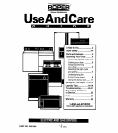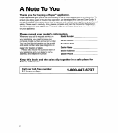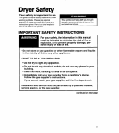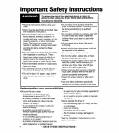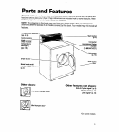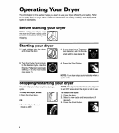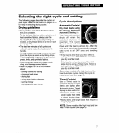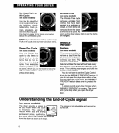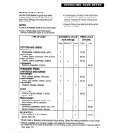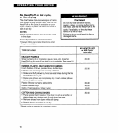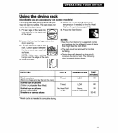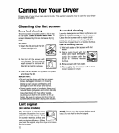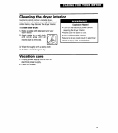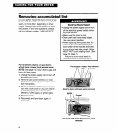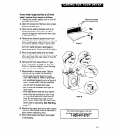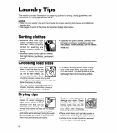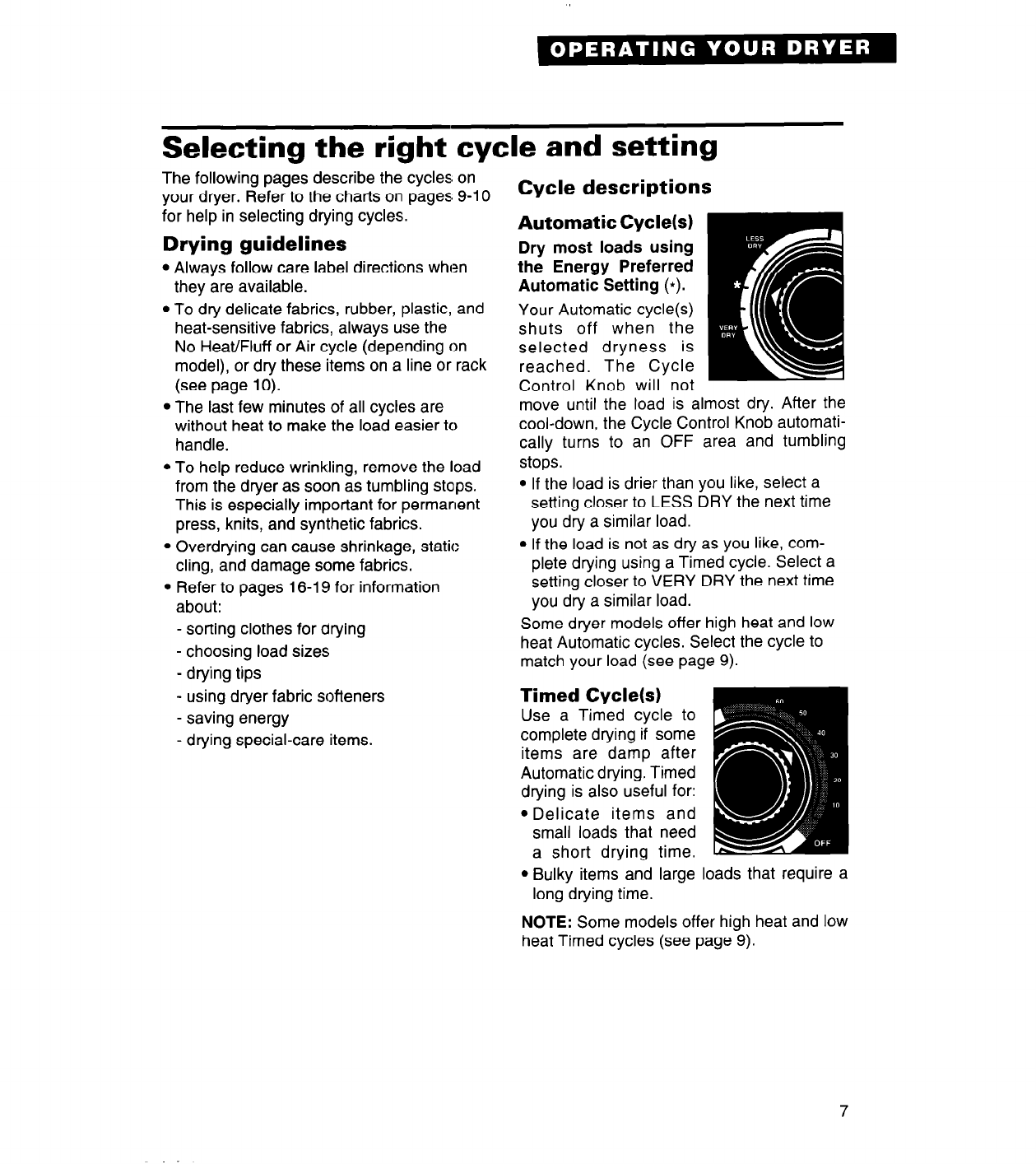
Selecting the right cycle and setting
The following pages describe the cycles on
your dryer. Refer to the charts on pages 9-10
for help in selecting drying cycles.
Drying guidelines
l Always follow care label directions when
they are available.
l To dry delicate fabrics, rubber, plastic, and
heat-sensitive fabrics, always use the
No Heat/Fluff or Air cycle (depending on
model), or dry these items on a line or rack
(see page 10).
l The last few minutes of all cycles are
without heat to make the load easier to
handle.
l To help reduce wrinkling, remove the load
from the dryer as soon as tumbling stops.
This is especially important for permanent
press, knits, and synthetic fabrics.
l Overdrying can cause shrinkage, static
cling, and damage some fabrics.
l Refer to pages 16-l 9 for information
about:
- sorting clothes for drying
- choosing load sizes
- drying tips
- using dryer fabric softeners
- saving energy
- drying special-care items.
Cycle descriptions
Automatic Cycle(s)
Dry most loads using
the Energy Preferred
Automatic Setting (+).
Your Automatic cycle(s)
shuts off when the
selected dryness is
reached. The Cycle
Control Knob will not
move until the load is almost dry. After the
cool-down, the Cycle Control Knob automati-
cally turns to an OFF area and tumbling
stops.
l If the load is drier than you like, select a
setting closer to LESS DRY the next time
you dry a similar load.
l If the load is not as dry as you like, com-
plete drying using a Timed cycle. Select a
setting closer to VERY DRY the next time
you dry a similar load.
Some dryer models offer high heat and low
heat Automatic cycles. Select the cycle to
match your load (see page 9).
Timed Cycle(s)
Use a Timed cycle to
complete drying if some
items are damp after
Automatic drying. Timed
drying is also useful for:
l Delicate items and
small loads that need
a short drying time.
l Bulky items and large loads that require a
long drying time.
NOTE: Some models offer high heat and low
heat Timed cycles (see page 9).
7



